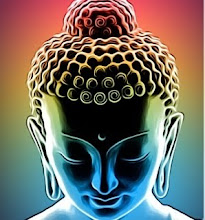
Most translations of the Four Noble Truths refer to "suffering."
Although I am hardly a scholar of Pali or Sanskrit, it seems to me that, at least insofar as these translations are targeted towards Buddhists in the English-speaking west, it might be better to use a different terminology.
In contemporary English usage, "suffering" has the connotation of physical pain or discomfort. Of course, the Buddha was referring to mental and spiritual suffering or anguish as well as physical pain.
The Sanskrit term dukkha connotes insufficiency, inadequacy, imbalance, uneasiness, impermanence and imperfection:
In classic Sanskrit, the term dukkha was often compared to a large potter's wheel that would screech as it was spun around, and did not turn smoothly. The opposite of dukkha was the term sukkha which brought to mind a potter's wheel that turned smoothly and noiselessly. In other Buddhist-influenced cultures, similar imagery was used to describe dukkha. An example from China is the cart with one wheel that is slightly broken, so that the rider is jolted now and again as the wheel rolls over the broken spot.
[from Wikipedia]
If one must translate dukkha into a single English word, perhaps it is better to think of "dissatisfaction" or "discontentment" rather than "suffering."
If I was trying to explain the Four Noble Truths to a non-Buddhist, I would explain it like this:
Although I am hardly a scholar of Pali or Sanskrit, it seems to me that, at least insofar as these translations are targeted towards Buddhists in the English-speaking west, it might be better to use a different terminology.
In contemporary English usage, "suffering" has the connotation of physical pain or discomfort. Of course, the Buddha was referring to mental and spiritual suffering or anguish as well as physical pain.
The Sanskrit term dukkha connotes insufficiency, inadequacy, imbalance, uneasiness, impermanence and imperfection:
In classic Sanskrit, the term dukkha was often compared to a large potter's wheel that would screech as it was spun around, and did not turn smoothly. The opposite of dukkha was the term sukkha which brought to mind a potter's wheel that turned smoothly and noiselessly. In other Buddhist-influenced cultures, similar imagery was used to describe dukkha. An example from China is the cart with one wheel that is slightly broken, so that the rider is jolted now and again as the wheel rolls over the broken spot.
[from Wikipedia]
If one must translate dukkha into a single English word, perhaps it is better to think of "dissatisfaction" or "discontentment" rather than "suffering."
If I was trying to explain the Four Noble Truths to a non-Buddhist, I would explain it like this:
- Life is inherently unsatisfying. Nothing lasts forever. All things must come to an end. Even those things we believe are lasting are in fact fleeting. Everything around us (and within us) has a beginning and an end.
- There is a reason life is unsatisfying. Our dissatisfaction arises from our mistaken belief in the continuity of things around us.
- There is a way to overcome such dissatisfaction. If we can learn to live in a way that is mindful and accepting of the impermanence of things, then we will no longer feel so unhappy and unsatisfied.
- One can overcome dissatisfaction and achieve nirvana by living in accordance with the Eightfold Path. The Eightfold Path is a set of practices that enable us to live more mindfully so that we feel at peace with the impermanent nature of the universe.
I think too many non-Buddhists hear the word "suffering" and immediately think that Buddhism is pessimistic and bleak. Perhaps by using a different, less negatively connotative terminology we can give English-speaking Westerners a clearer picture of the Four Noble Truths.
Or perhaps it is better not to translate dukkha into a single word and instead to try and define it contextually.
Namaste.

1 comment:
I like your explaination. Welcome back. :)
Post a Comment